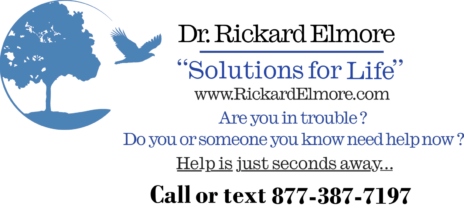Often the effects of addiction to substances can be confused with the symptoms of bipolar disorder. This confusion can be highly detrimental to one’s health. Ensuring that a person is receiving the correct treatment and care is essential for continued healing and recovery.
By distinguishing the differences between addiction and bipolar disorder, those in need can better understand what kind of treatment they may need to seek out for their recovery plan. Below are the main differences and similarities between addiction and bipolar disorder, as well as options for seeking out help for both issues.
Knowing the Similarities
Those with bipolar disorder experience manic and depressive episodes, lasting for about one to two weeks, depending on the person. Those with bipolar 2 experience hypomanic episodes instead of manic episodes. Hypomania is a less intense version of mania. For a manic or hypomanic episode, a person may experience the following:
- Hyperactivity
- Talkativeness
- Lack of sleep
- Rapid thoughts
- Risk-taking decisions
- Short attention span
- Focused on one goal
- Inflated self-confidence
- Extreme happiness
- Extreme irritability
During a depressive episode, a person’s energy drastically can change. A depressive episode can consist of the following effects:
- Insomnia
- Extreme fatigue
- Feeling hopeless
- Restlessness
- Lack of concentration
- Suicidal thoughts
Both a manic and depressive episode’s side effects mirror that of a person using various addictive drugs such as meth or cocaine. These symptoms include:
- Intense happiness
- Decreased appetite
- Insomnia
- High bursts of energy
- Poor judgment
- Anxiety
- Irritability
- Paranoia
Given these similar effects, one could be easily mistaken for the other, thus creating even more difficulties when finding treatment.
Identifying Differences Between the Two
It is no wonder why these two conditions often get mistaken for one another, given their similar effects. Although, if given the correct information, this confusion can become much less muddled.
Bipolar disorder is a condition that can be developed at any point in life for various reasons, including genetics, chemical imbalances in the brain, traumatic events, and addiction. It can be especially tricky to diagnose because it shares many symptoms with those who struggle with addiction. However, there are a few things to look out for when trying to distinguish between the two.
A person struggling with substance use will experience symptoms in much shorter durations than those with bipolar disorder. Those experiencing the high of cocaine, for example, only experience its effects for 15 minutes to sometimes two hours. Coming down from this substance may last for up to two days. However, a person recovering from meth can experience symptoms of anxiety and depression for many weeks, depending on how much they used and how long they had been using for.
As a general rule of thumb, those with bipolar disorder experience their symptoms for about one to two weeks at a time. The manic episodes typically last for one week, while the depressive episodes last around two weeks. However, this may not be the case for everyone.
Those struggling with substance abuse will also exhibit behaviors that may indicate a substance is being used. These individuals may lie about what they have been doing or where they have been, they may sneak away privately to use, or they may begin selling belongings in order to buy or obtain substances.
Getting the Right Help
Whether you are battling addiction or bipolar disorder, seeking help is vital to your recovery journey. Knowing ahead of time whether you have bipolar disorder or are struggling with an addiction is not necessary to seek out help. Finding professionals to understand better your struggles and how to help can help you move forward in your recovery in a way that no longer involves suffering alone. Below are some ways in which you can begin to heal from your struggles:
- Cognitive-Behavioral Therapy (CBT): Effective in treating both bipolar disorder and addiction, CBT helps the individual by identifying problematic thinking patterns and challenging them with new, more helpful, and accurate ways of thinking.
- Family-Focused Therapy (FFT): FFT offers the individual a safe space to educate the individual and their loved ones more about seeking help. In this way, the loved ones can better assist and support the individual along their recovery journey.
- Recovery Coaching: Designed to cater to the individual’s specific needs, recovery coaching can transform one’s lifestyle no matter what they are battling in life. The recovery coach can get to know more about you and your situation, then form a unique plan to help you change your everyday habits to obtain your goals in life.
Identifying the difference between bipolar disorder and addiction can be tricky. Given their many similarities and shared side effects, trying to spot the differences within yourself or a loved one can be a disheartening and challenging process. However, side effects are typically shorter for those using substances than those with bipolar disorder, but this can vary case by case. Unless you can see that a person may be using a substance through lies and sneaking around, you may need assistance for this process. At Rickard Elmore Treatment Strategies, we do not believe that you need to be diagnosed with a condition in order to seek out help. No matter what you are struggling with, we are here to better understand you, your struggles, and your needs to give you the best recovery plan that suits your needs. Contact Rickard Elmore today at (877) 387-7197 to begin your journey towards recovery.

